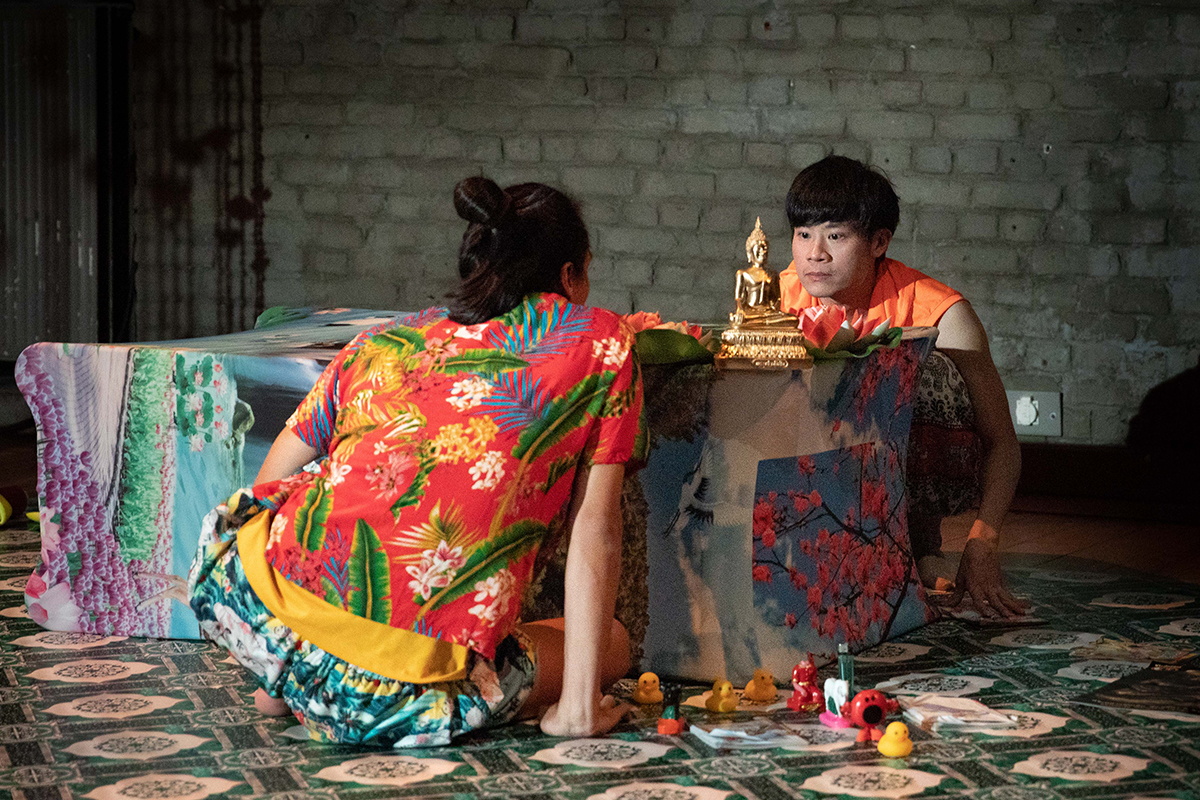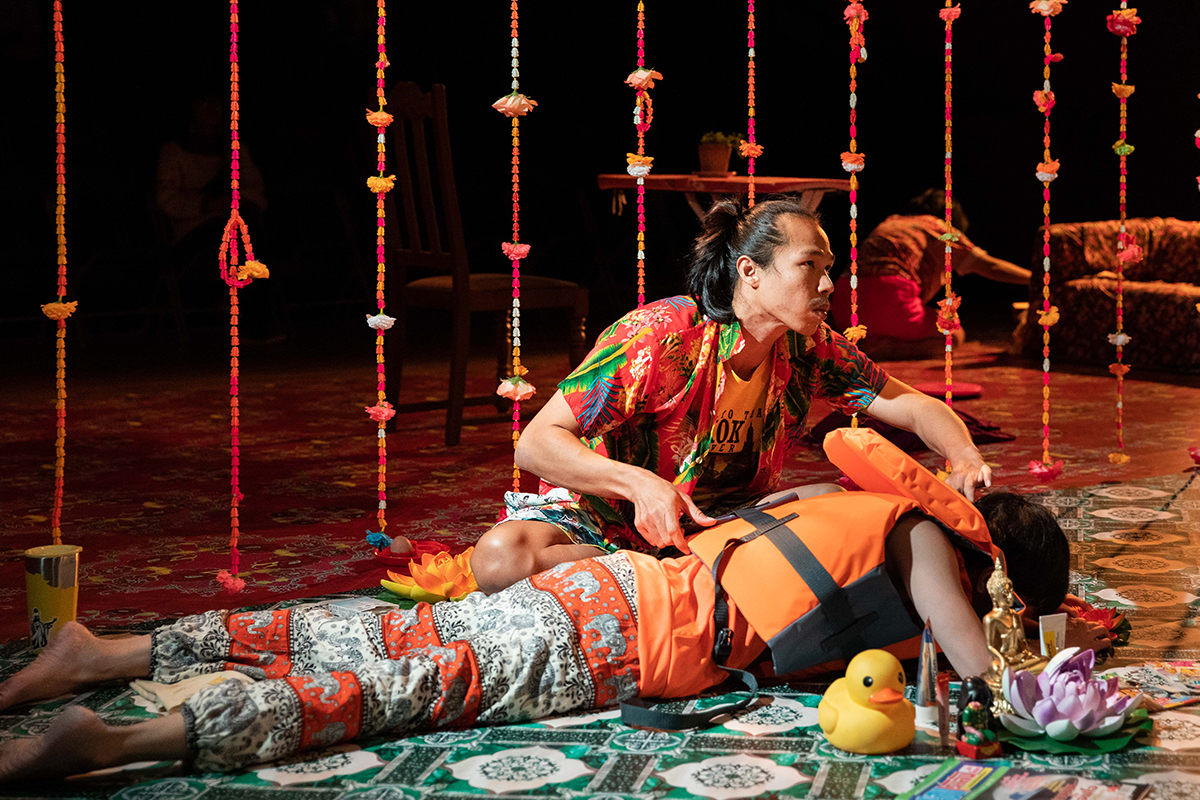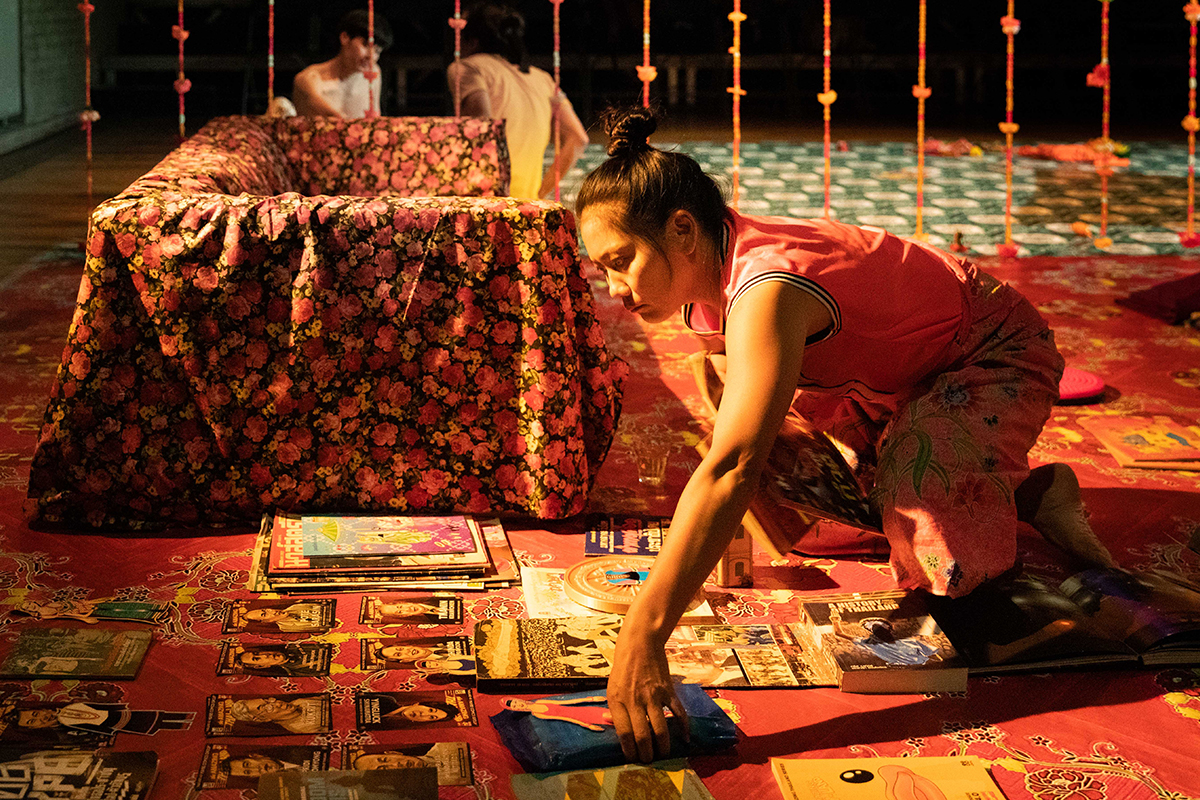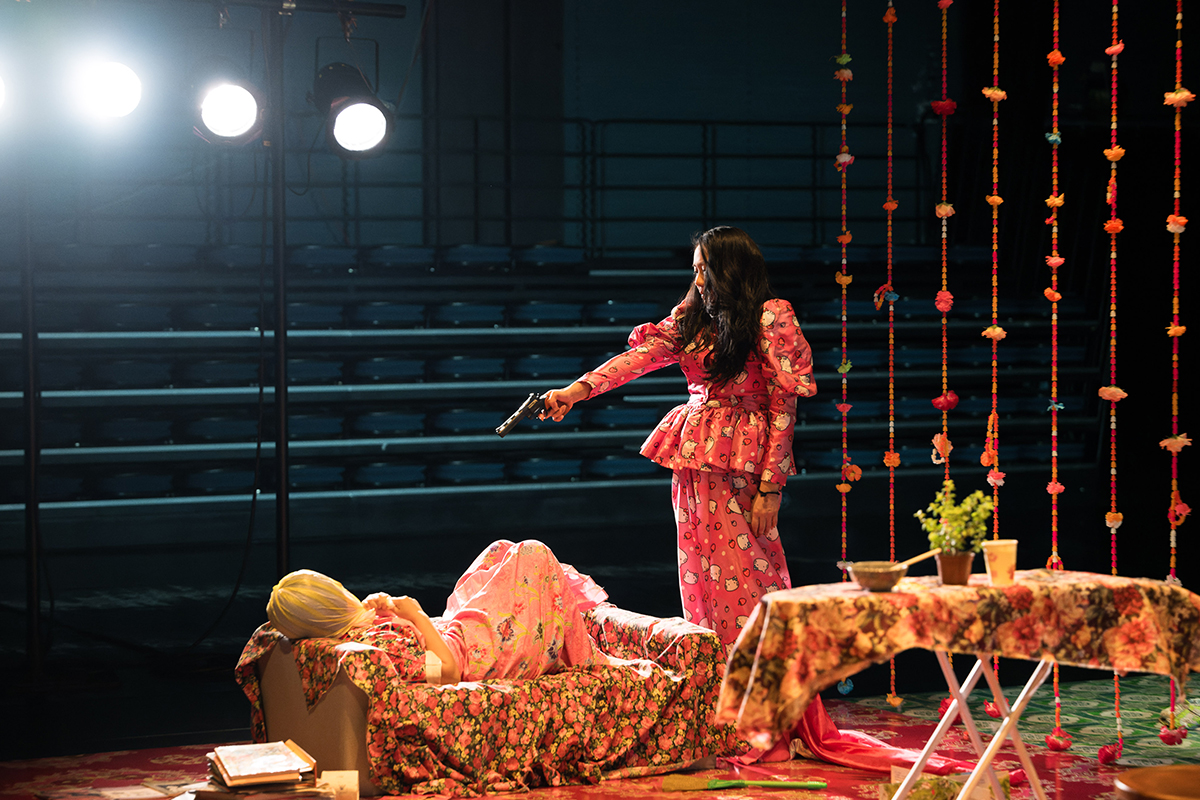Baan Cult, Muang Cult
Wichaya Artamat
© anna van waeg
- Director Wichaya Artamat
- Genre Theatre
- Date 10.28.Tue. 7:30pm 10.29.Wed. 7:30pm
- Language Thai
- Accessibility Korean surtitles, English surtitles
- Rating 18 and above
- Venue Arko Arts Theater Small Theater
- Duration 90 min.
- Premiere 2023 Kunstenfestivaldesarts, Brussels, Belgium
- Tickets 40,000 won
Two rooms, reflecting the unspoken truths of Thai society through cracks in quiet everyday lives
IntroductionThere are two small rooms. In one, two women reside; in the other, two teenage boys. In both, the same pervasive sound of radio is heard, alternating between news items, traditional music, propaganda, and advertising. Casual conversations are exchanged amidst ordinary, monotonous routines, but the radio sounds echoing between the two rooms create strange tension. Alternating between news items, traditional music, propaganda, and advertising, the radio reveals cross-sections of Thai society.
<Baan Cult, Muang Cult> is an experimental play that extends beyond a simple domestic scene to explore the three absolute pillars of Thai authority: the monarchy, religion, and the state. Based on a script co-written by Ratchapoom Boonbunchachoke and Pathipon Adsavamahapong, director Witchaya Artamat uses the stillness of everyday life to delicately—and at times boldly—reveal taboos and power.
On stage, characters speak about life and death, sexuality, memory, and religion. The women calmly talk about the possible ends of their lives, while the boys share their feelings after watching the film <Little Buddha> and talk about their turbulent adolescence. Through these ordinary yet somehow unfamiliar stories, the audience encounters moments when ‘life itself becomes political’ in a society where political expression is suppressed.
Following his 2019 work <This Song Father Used to Sing>, Witchaya Artamat once again employs subtle acting, everyday gestures, and small cinematic details to bring to the stage what cannot be expressed openly. With a poetic, humorous, and at times tender gaze, this work sheds light on the structure of the cult that simultaneously governs the home (Baan) and the nation (Muang). <Bann Cult, Muang Cult> subtly yet powerfully compels the audience to confront uncomfortable truths they’ve long ignored.
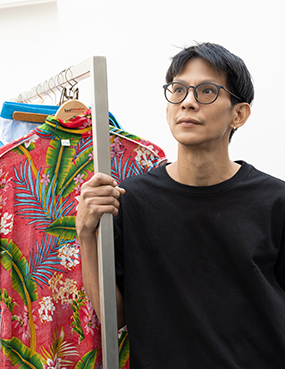
Witchaya Artamat
Witchaya Artamat has emerged as one of the leading voices in contemporary Southeast Asian theatre, known for his controlled formats and delicate perspective in exploring social taboos. Although he majored in film directing during his undergraduate studies, he became captivated by stage arts and took his first step into theatre as a project coordinator for the Bangkok Theatre Festival in 2008. Subsequently, in 2009, he joined the New Theatre Society, where he began his career as a director. He has a deep interest in exploring how society remembers and forgets history through specific dates. This interest is reflected throughout his works, in which he translates time, memory, and national narratives into refined theatrical language. In 2011, he co-founded For What Theatre, a company dedicated to independent and experimental creation. He also continues to collaborate with creative collectives such as Sudvisai Club and Collective Thai Scripts. Since 2019, his works have been presented on international stages through co-productions with major European festivals including Kunstenfestivaldesarts, Wiener Festwochen, and Festival d’Automne à Paris.
- Concept and direction Wichaya Artamat
- Text Ratchapoom Boonbunchachoke, Pathipon (Miss Oat)
- Cast Parnrut Kritchanchai, Dujdao Vadhanapakorn, Sarut Komalittipong, Surat Kaewseekram
- Sound collage Wichaya Artamat
- Technical direction and scenography Pornpan Areeyaveerasid, Rueangrith Suntisuk
- Costume design Nicha Buranasamrit
- Coporduction Kunstenfestivaldesarts
-
“Usually, I only write about deep-sea fish. But today, I'm going to write about the play "Baan Cult Muang Cult", which might be as mysterious to land people as deep-sea fish.”
- Sasitin Seenaphasavikkaya, Deep-Sea Biology Scholar


